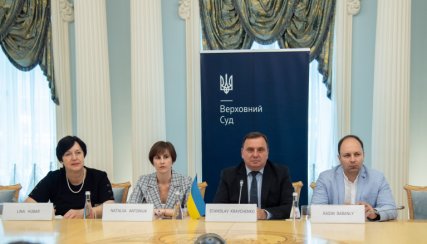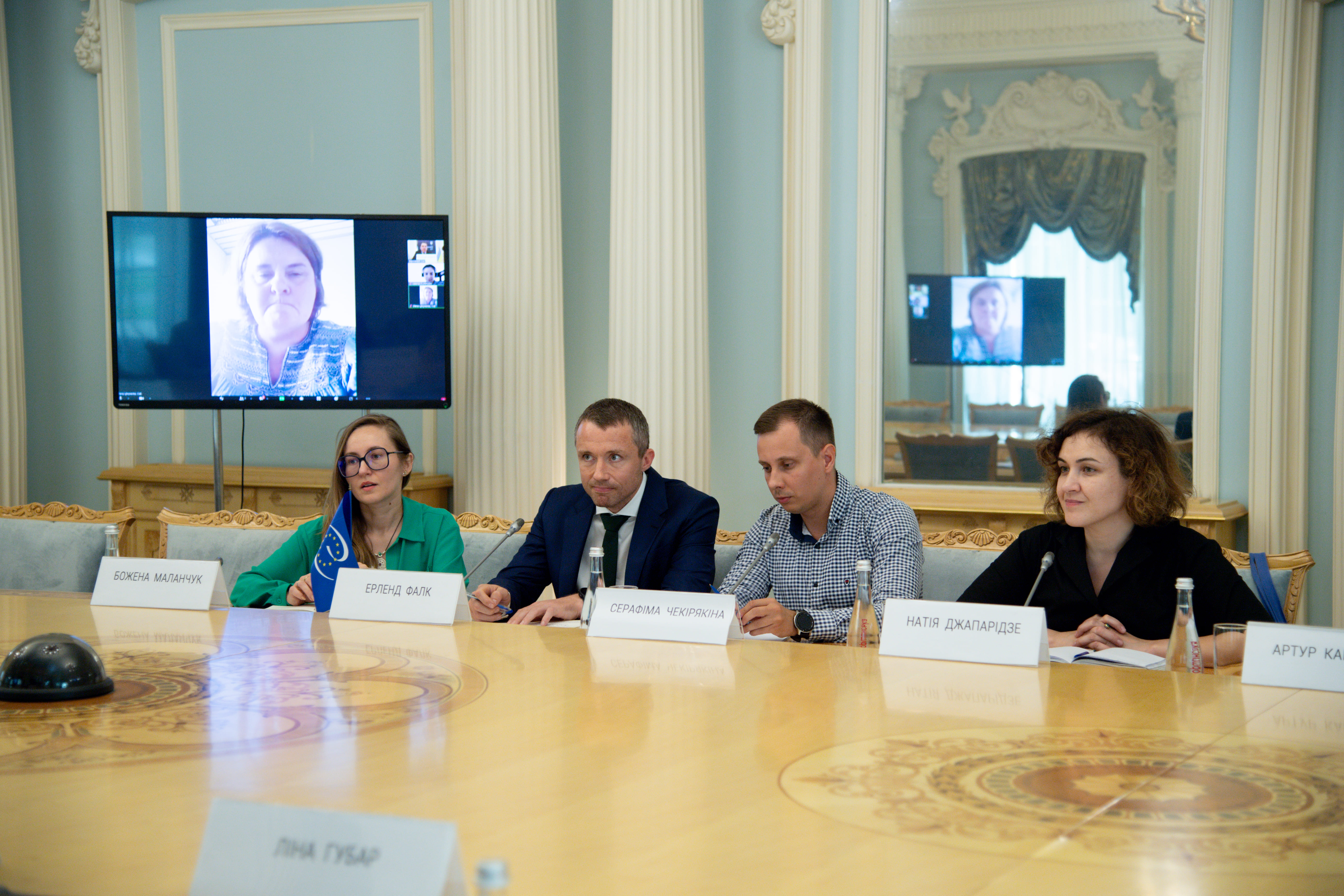Contact center of the Ukrainian Judiciary 044 207-35-46

The establishment of an international register of damages caused by the Russian aggression against Ukraine is an important part of international initiatives to create a mechanism of compensation for Russian crimes.
This was stated by the President of the Supreme Court Stanislav Kravchenko during a meeting with the Acting Head of the Council of Europe Office in Ukraine Olena Lytvynenko (online participation) and the Deputy Head of the Council of Europe Office in Ukraine Erlend Falk.
Other participants in the meeting included the Secretary of the First Judicial Chamber of the Criminal Cassation Court within the Supreme Court Nataliia Antoniuk, the First Deputy Chief of Staff of the Supreme Court Rasim Babanly, the Head of the Division for International Legal Cooperation Lina Hubar, the CoE Project Coordinator at the CoE Directorate General for Rule of Law and Human Rights in Strasbourg Bozhena Malanchuk, the CoE Project Manager of the project "Fostering Human Rights in the Criminal Justice System of Ukraine" Natia Japaridze, and CoE Project Legal Adviser Artur Karvatskyi.
Stanislav Kravchenko pointed to the important role played by the Council of Europe in the process of creating the said register and noted that the damage caused by the aggression was growing every day as Russia did not stop shelling the territory of Ukraine.
He also thanked the representatives of the Council of Europe for their support of the Supreme Court and the Ukrainian judicial system in general during the war. According to him, the courts of Ukraine had to adapt to the administration of justice under martial law, taking into account the security challenges.
The President of the Supreme Court briefed the Council of Europe representatives on urgent organisational and technical challenges, the difficult staffing situation in the judiciary, and spoke about new categories of war-related crimes, including genocide and ecocide. The Ukrainian courts will also have to examine a large number of criminal proceedings concerning crimes against national security, including high treason and collaboration.
Nataliia Antoniuk outlined the range of issues related to war-related criminal proceedings, focusing on the use of digital evidence in accordance with current legislation, respect for the rights of accused tried in absentia, and the questioning of witnesses and victims during pre-trial investigation. According to the judge, in order to avoid repeated traumatization of such persons, it would be advisable to make greater use of their testimony made to the investigating judge during the pre-trial investigation. The aim is to extend the possibility of using such testimony directly during the trial on the merits of the charges.

During the meeting, the issues of cooperation between the Supreme Court and the Council of Europe Project "Fostering Human Rights in the Criminal Justice System in Ukraine" were discussed.
The Council of Europe representatives expressed their hope for continued close cooperation with the Supreme Court, which is one of their key partners. Priority areas of cooperation included support for an independent and reliable judiciary in Ukraine, further strengthening of the structural independence of the judiciary, development of judicial self-government and widening access to justice. Particular attention should be paid to the needs of the Ukrainian judiciary in view of the challenges posed by the war, the development of the institutional capacity of the courts and the professional development of judges in the area of war crimes.